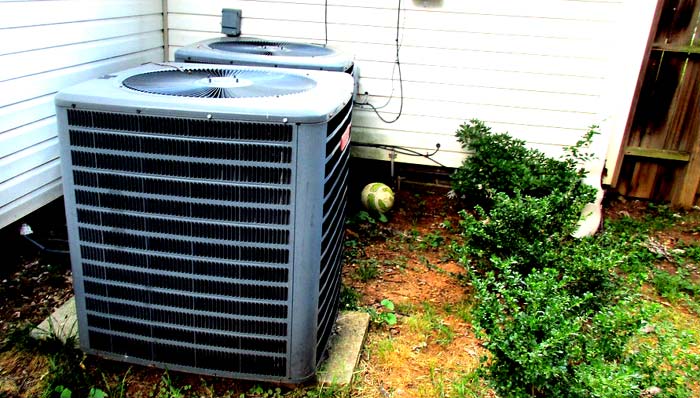Efficiency in home heating and cooling is vital to making sure that your energy bill stays low while maintaining a comfortable home. However, if you’re not sure what you can do to create a more efficient home heating and cooling system, you might not know exactly how or why to do it. More efficient home heating and cooling is definitely something to pursue, regardless of how much you know about it, and here’s how you can accomplish it.

Where Does Your Home Lose Energy?
There are a few places where your home may be more prone to losing energy. These areas tend to be places where it’s more difficult to ensure a tight seal between joints, especially when the areas already lead to the outside.
Here are the areas where you’re most likely to lose energy in your home:
- Windows
- Doors
- Crawl space vents
- Duct register
- Top plate
- Sill plate
- Vent fan
- Dryer vent
- Plumbing vent stack
Of course, every home is unique. The places where your home is losing energy might not be the same places where another home will be losing energy. That’s why it’s so important to make sure that you have an expert to give you information about what you might need to change in your home. An expert’s appraisal can help you ensure that you’re not losing too much energy, especially in areas you may not have thought to check.
What Can You Do to Improve Energy Efficiency?
So, what can you do to improve your home’s energy efficiency? There are actually many different options you have available to boost your energy efficiency, especially if you’ve never done them before. Here are five options you have to improve your home’s energy efficiency, so you can make your home more energy-efficient.
- 12-33%: Installing storm windows
- 5-30%: Sealing air leaks with spray foam, caulk, and weather stripping
- 20%: Crawl space insulation and encapsulation
- 15%: Installing an EnergyStar gas stove
- 10%: Using a programmable thermostat to use less electricity when you sleep
Any of these things can be very beneficial, especially for a home that doesn’t have energy efficiency upgrades already.
However, it’s always best to use energy-efficient methods that work best for your home specifically. Make sure you’re thinking about your home’s energy efficiency needs, and always talk to an expert if you don’t know your energy efficiency options.
A Better Value With Better Energy Efficiency
So, why should you want to invest in energy-efficient measures for your home? There are a number of reasons to invest in energy efficiency. Some of them have to do with benefitting your home, some of them have to do with benefitting the environment, and some of them have to do with benefitting your pocketbook.
Here are a few of the benefits of energy-efficient elements.
- Energy efficiency reduces the amount of energy consumption a home uses, which is great for the environment.
- You may be able to claim a tax credit for a percentage of the cost you spent on home insulation.
- With a lower utility bill, you may eventually be able to pay for your energy efficiency updates.
- Your improved thermal performance may make your living spaces more comfortable overall, even if you’re not using as much energy.
With all of these things combined, it seems obvious that you would want to invest in energy-efficient upgrades for your home. However, it’s important that you invest in upgrades that maintain your energy efficiency in the way your home needs. Maintaining energy efficiency is easier when you tailor your upgrades to your home.
Conclusion
The best way to maximize the energy efficiency in your home is to make sure that you’re maintaining your unique energy efficiency needs. Different homes have different energy efficiency needs; there’s no such thing as a one-size-fits-all solution. Talking to a home renovation expert will help you understand exactly what energy efficiency will do for you.



